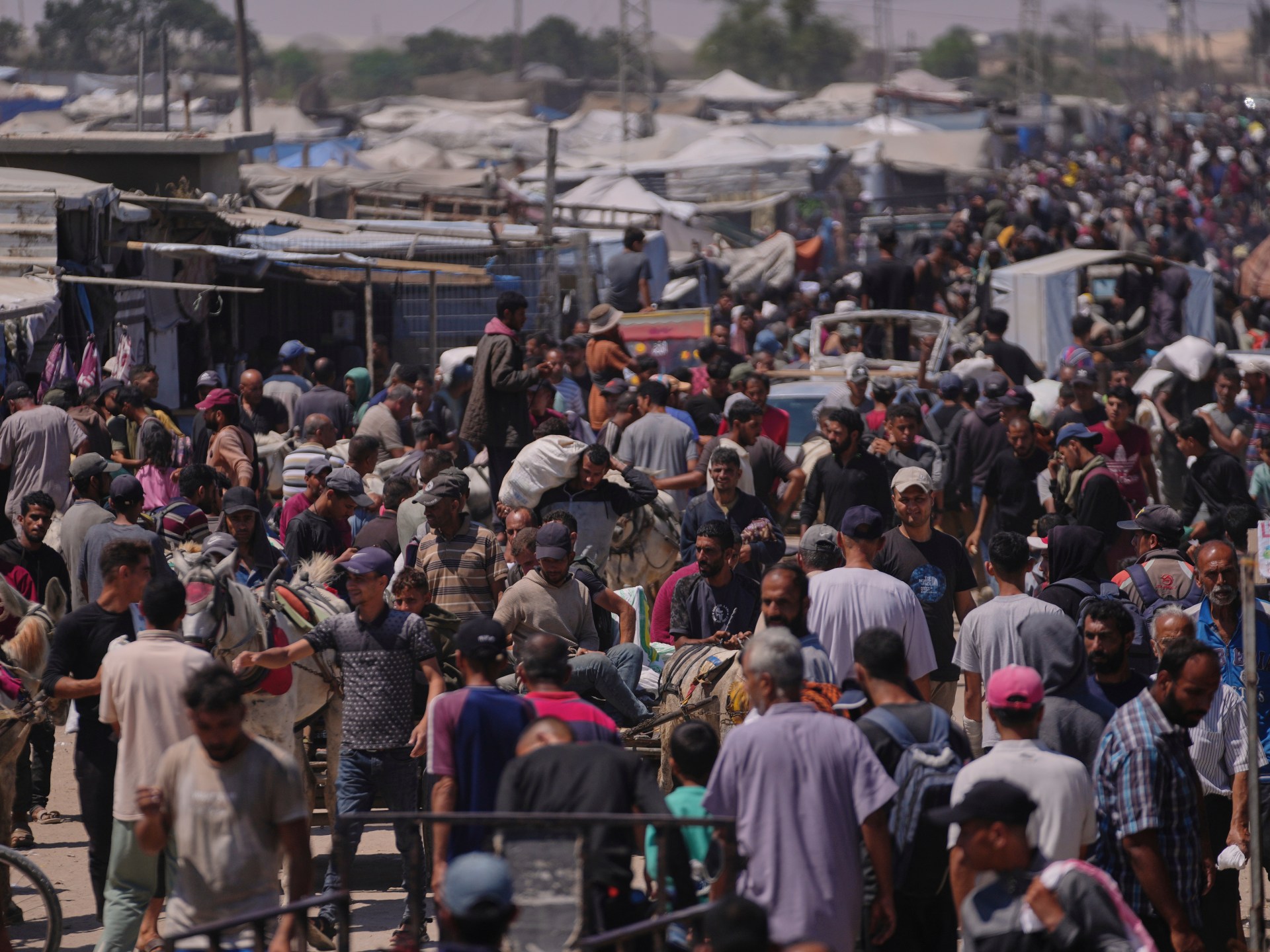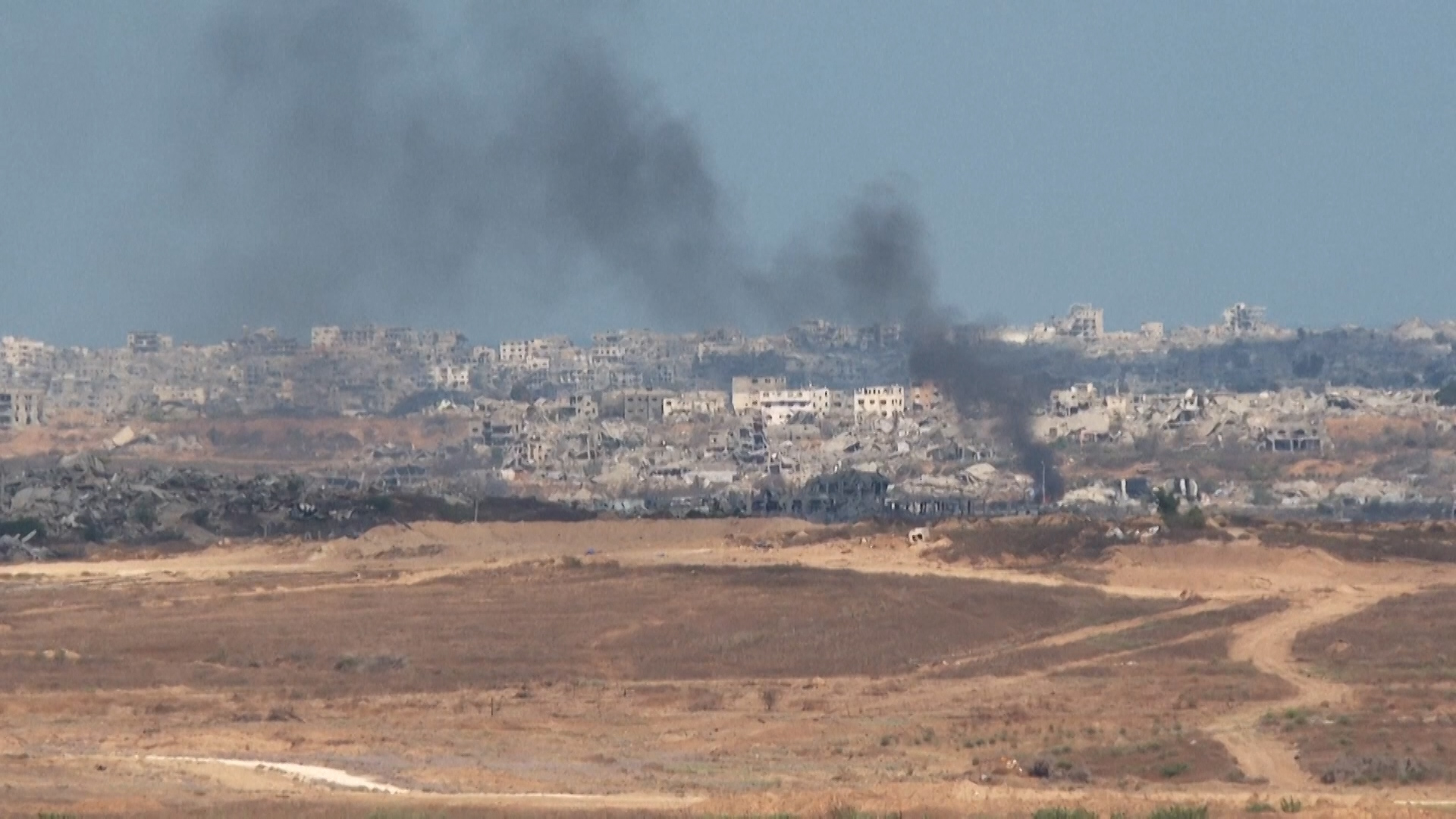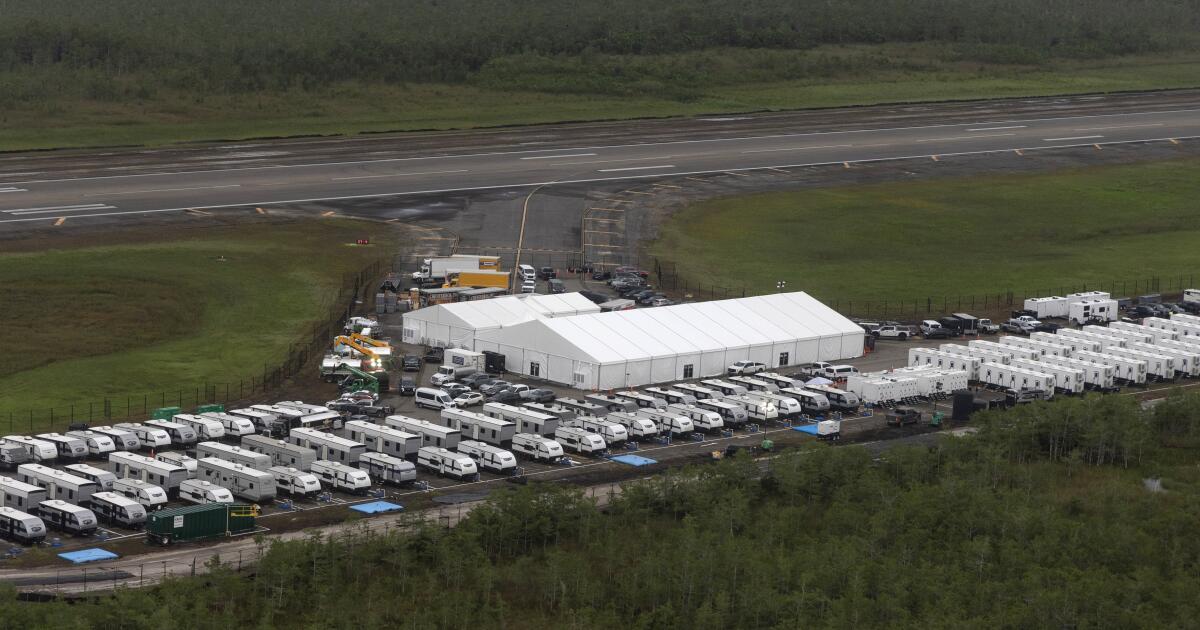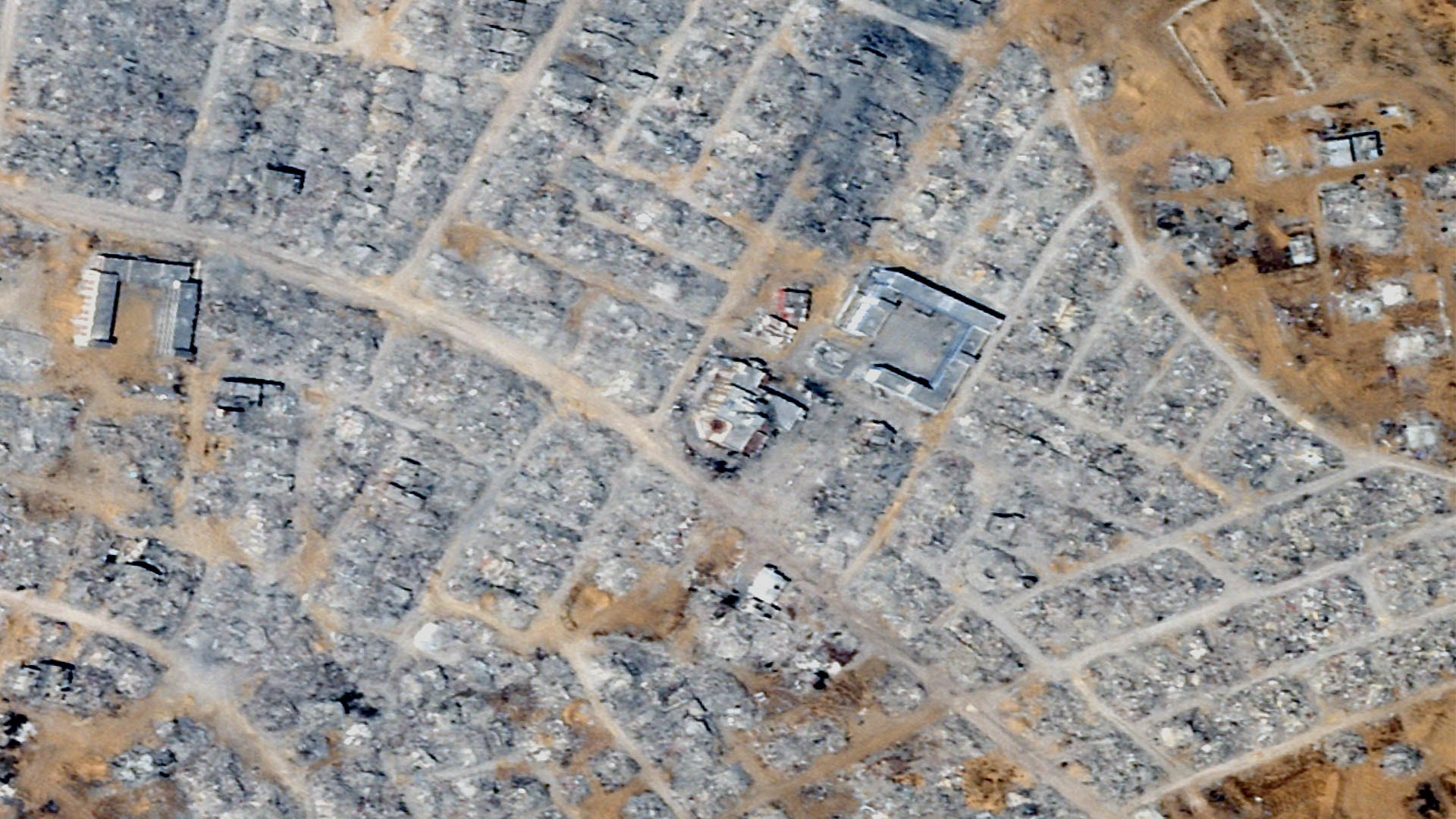Israel presses ahead with Gaza ‘concentration camp’ plans despite criticism | Israel-Palestine conflict News
Israel is ploughing ahead with a plan to build what critics have described as a “concentration camp” for Palestinians on the ruins of Rafah in southern Gaza, in the face of a growing backlash at home and abroad.
The suggestion, first mooted by Israeli Defence Minister Israel Katz earlier this month, anticipates an area that could accommodate an initial group of some 600,000 already displaced Palestinians in Gaza, which would then be expanded to accommodate all of the enclave’s pre-war population of some 2.2 million people. It would be run by international forces and have no Hamas presence.
Once inside Katz’s self-styled “humanitarian city”, Palestinians would not be allowed to leave to other areas in Gaza, but would instead be encouraged to “voluntarily emigrate” to other unspecified countries, the minister said.
Katz’s plan has already received significant criticism. Labelled a “concentration camp” by former Prime Minister Ehud Olmert and illegal by Israeli lawyers, it has even been criticised by the military that will be responsible for implementing it, with the military’s chief of staff, Eyal Zamir, reportedly calling it “unworkable” with “more holes in it than cheese”.
Internationally, a British minister said he was “appalled” by the plan, while Austria and Germany’s foreign ministers expressed their “concern”. The United Nations said it was “firmly against” the idea.
But members of the Israeli government have defended the idea, and leaks continue to emerge in the Israeli media over the debate surrounding it within the government – with Israeli Prime Minister Benjamin Netanyahu reportedly asking only for a plan that was speedier and less costly than a plan presented by the Israeli army.
An Al Jazeera investigation has found that Israel has recently increased the number of demolitions it is conducting in Rafah, possibly paving the way for the “humanitarian city”.
Long planned
Depopulating Gaza has long been an ambition of some of Israel’s more hardline settler groups, who believe themselves to have a divine mandate to occupy the Palestinian territory. The Israeli far-right was encouraged to press ahead with the idea when United States President Donald Trump suggested in February that Palestinians in Gaza could be displaced and moved elsewhere.
Since then, both Netanyahu and Finance Minister Bezalel Smotrich have backed calls for displacement.
When Netanyahu announced in May the creation of the controversial US-backed GHF, a body intended to deliver limited aid into the enclave his forces had been besieging since early March, Netanyahu referred to a future “sterile zone” that Gaza’s population would be moved into, where they would be allowed aid and food.
Later the same month, Smotrich, who has criticised the current plan as too costly but is not opposed to the idea in principle, also suggested that plans were under way to push Gaza’s population into a camp.
Addressing a “settlement conference” in the occupied West Bank, Smotrich told his audience that what remained of Gaza would be “totally destroyed” and its population pressed into a “humanitarian zone” close to the Egyptian border, foreshadowing the language used by Katz.
Part of the Israeli plan
Israeli political analyst Nimrod Flashenberg told Al Jazeera that – for the Israeli government – there was merit to the plan, both from a security perspective, and “from the perspective of ethnically cleansing” Gaza, and providing an end goal that Israel’s leaders could define as a success.
“As I understand it, parts of the military regard removing civilians from the [non-Israeli controlled parts] of Gaza and concentrating them in a single space as an ideal first step in locating and eliminating Hamas,” Flashenberg said of the Palestinian group that Israel has failed to eliminate in 21 months of conflict, despite the killing of more than 58,000 people.
Flashenberg added that the plan would effectively create an “ethnic cleansing terminal”, from which, once people were separated from their original homes, “it makes it easier to move them elsewhere”.
“Of course it complicates ceasefire negotiations, but so what?” Flashenberg said, referring to the ongoing talks aimed at bringing about an initial 60-day ceasefire. “Nothing has really changed. It’s possible, of course, that with work on the concentration camp under way, Hamas might still accept the ceasefire and hope that things might change.”
“It’s part of their entire mentality,” Aida Touma-Suleiman, a member of the Israeli parliament representing the Hadash-Ta’al party, said. “They really do believe that they can do anything: that they can move all of these people around as if they’re not even humans. Even if imprisoning just the first 600,000 people suggested by Katz is inconceivable. How can you do that without it leading to some kind of massacre?”
“That they’re even talking about criminal acts without every state in the world condemning them is dangerous,” she added.
But lawyers in Israel have questioned the legality of the move. Military lawyers are reported to have “raised concerns” that Israel might face accusations of forced displacement, and an open letter from a number of Israeli legal scholars is more explicit, slamming the proposal as “manifestly illegal”.
‘Nothing humanitarian’
According to the United Nations, at least 1.9 million people, about 90 percent of Gaza’s pre-war population, have been displaced as a result of Israeli attacks. Many have been displaced multiple times.
Earlier this month, Amnesty concluded that, despite the militarised delivery of limited aid into the strip, Israel is continuing to use starvation as a weapon of war. According to the rights agency, the malnutrition and starvation of children and families across Gaza remain widespread, with the healthcare system that might typically care for them pushed to breaking point by Israel.
“Humanitarian city? I despise all these euphemisms. There’s nothing humanitarian about this. It’s utterly inhumane,” Yossi Mekelberg, a senior consulting fellow at Chatham House, said. “There would be nothing humanitarian about the conditions that hundreds of thousands of Palestinians would be pushed into or about the idea you can only leave by going to another country.”
“This has to be condemned and there has to be consequences,” he continued. “It’s not true when people say there’s no international community any more. If you trade with Israel, cooperate militarily or diplomatically with it, you have leverage. The US has leverage, the EU [European Union] has leverage. All these actors do.”
“By shrugging your shoulders and saying it’s just anarchy,” he concluded, “you’re handing the keys to Smotrich, Katz and Netanyahu and saying there’s nothing you can do.”



